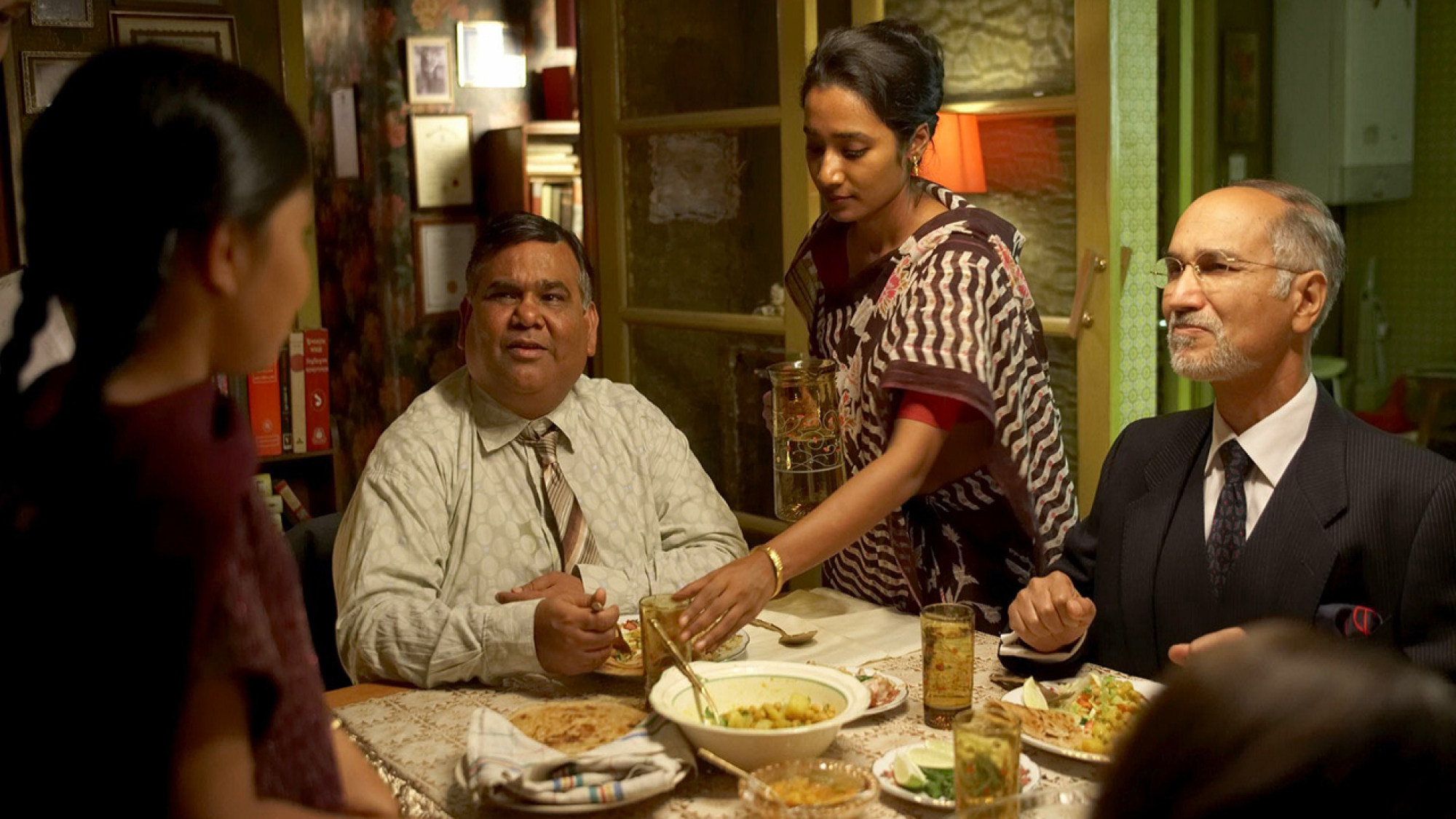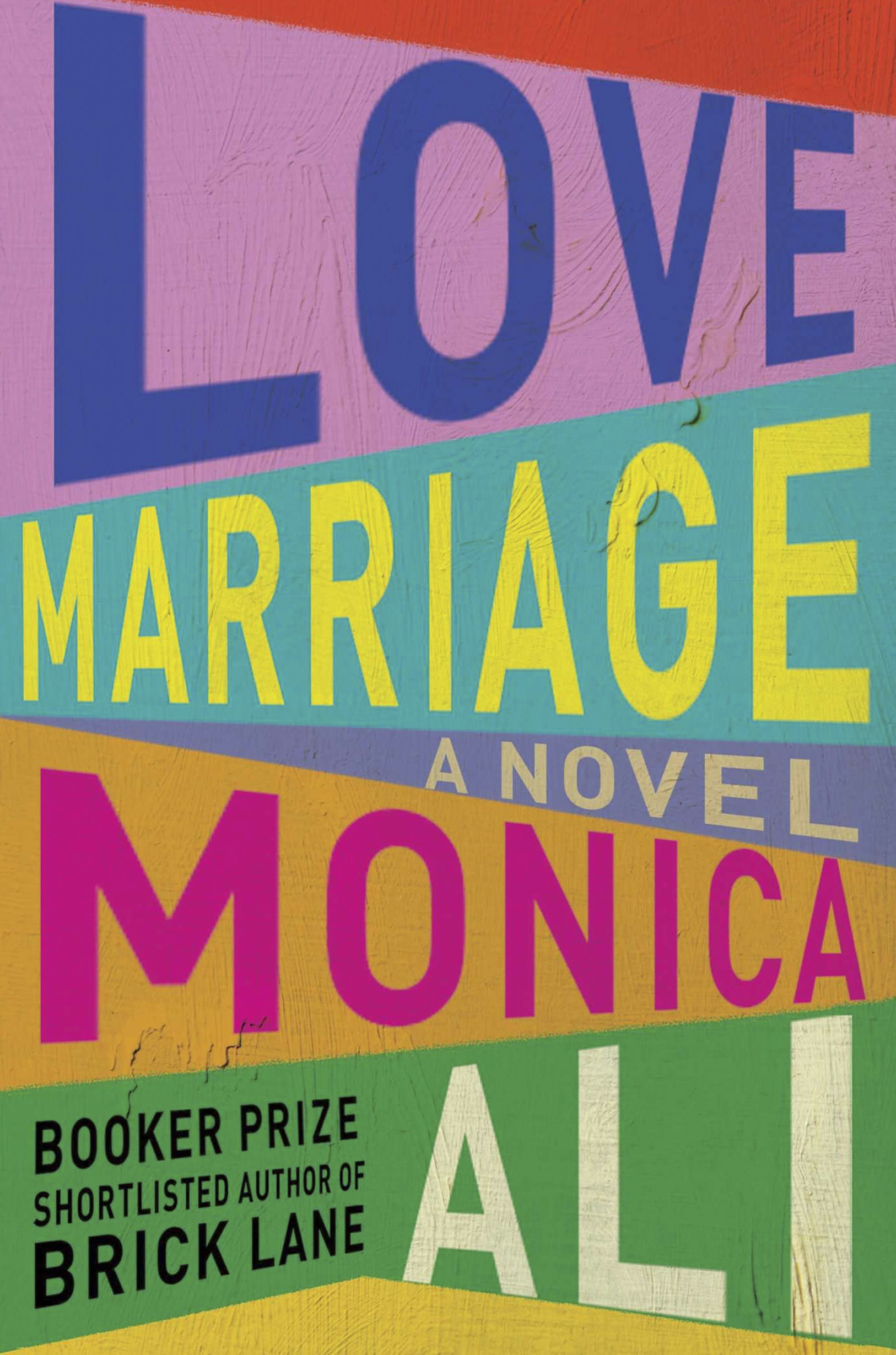
Review | Love Marriage is the novel we need in a world falling apart, for Brick Lane author Monica Ali’s comic intelligence and mischievous sensationalism
- The Brick Lane author’s fifth novel sees two young doctors, one a British Indian, get engaged. When the future mother-in-laws meet things get interesting
- A meaty soap opera that uses just about every sensationalist trick while leaning towards making grand statements about multiculturalism, this is pure fun
Love Marriage by Monica Ali pub. Scribner
Love Marriage is the fifth novel in 19 years by British writer Monica Ali. She has done well to get this far. Ali will probably always be best known for Brick Lane, her 2003 debut, which sold like a blockbuster and won praise and prize nominations like a masterpiece.
Four years later, it was turned into the obligatory over-hasty and underwhelming movie. Ali herself became a star, fought over by critics as venerable as Germaine Greer and Salman Rushdie, who, respectively, attacked and defended her authenticity as the new voice of the Anglo-Bangladeshi community.
Not every writer survives such instant fame and acclaim, let alone goes on to produce three further novels of wildly varying settings and styles, not to mention variable quality and reception. See the interlinked stories set in rural Portugal that comprise Alentejo Blue (2006) or the alternative history starring Diana, Princess of Wales in Untold Story (2011).

Which brings us, more or less, to Love Marriage. It is a title to toy with. Did Ali intend a bold declaration of thematic rights? Or, thinking perhaps of Jane Austen, an old-fashioned idea of romance’s proper order: Love (and then) Marriage?
The novel’s plot presents a third possibility: the “love match” as opposed to the “arranged marriage”. Enter Yasmin Ghorami, who is blissfully engaged to Joe Sangster. Yasmin is from Kolkata, Joe from London, where the couple live and work as young doctors-in-training.
Yasmin’s family are aspirational, hard-working south London immigrants with strong moral values: her father, Shaokat, has worked tirelessly to become a partner in his family physician practice. Joe is to the wealthy, entitled, morally liberal and socially deft north London manor born; his mother, Harriet, is a feminist icon of sorts, a writer who during the 1990s thought nothing of indulging in stark naked agitprop.
So far, so polarised, albeit in comic fashion. In a love marriage, Ali seems to say, you may be free to choose your partner, but not your partner’s family. Turning the screw of this set-up is another familiar set-piece: Ali arranges a powder-keg first meeting of the clans at Joe’s baronial family pad.
“The families are coming together,” says Shaokat. “Nothing can spoil the evening.” In a novel like Love Marriage, this is exactly the sort of statement that invites disaster. You can hear Fate cracking its knuckles to prime the dinner with sociocultural landmines. And so it proves.
The racism, trauma and humour of growing up in a Chinese takeaway
Yasmin’s brother, Arif, has found a picture of her mother-in-law-elect posing nude. “It’s a feminist photo,” Yasmin explains wearily and warily to her slacker sibling, knowing her own parents will view both feminism and nakedness with suspicion.
Then, although Harriet is the host, Yasmin’s mother Anisah brings curries, pakoras and other deep-fried savouries, all packed in Tupperware. Ali ups the embarrassment quotient further, first through Anisah’s fashion decision – a dress with striking parakeet motif – and then the Ghoramis’ punctuality: they set off with the aim of arriving “an anxious hour before they were expected”.
Ali pays all this off in ways that are by turns entertaining, funny, skin crawling, cartoonish and curiously moving. Central to the effect, and indeed the novel as a whole, is not Yasmin and Joe, but Anisah and Harriet. While the premise feinted at a collision course of class, culture, cooking and clothes, it doesn’t come as a surprise when such intelligent, self-possessed and idiosyncratic characters find common ground.
Yasmin has spotted Anisah reading one of Harriet’s books. What seemed like a nosy background check on the in-laws turns out to be the start of her own feminist journey of enlightenment.
Faster than you can say “humorous plot device”, Anisah begins hanging out at Harriet’s ritzy salons, continues by vacating the Ghorami family home and finally moves into Harriet’s pad. This is the spark that sets off many more fireworks.

Joe informs Yasmin he is a sex addict. Yasmin, who is ping-ponging emotionally between Harriet and Anisah, hits back by having rather superior hanky-panky with a fellow medic and wondering whether she wants to be a doctor after all.
Brother Arif ups the ante by getting his girlfriend pregnant, which touches off a whole new powder keg – Shaokat’s rage.
Love Marriage is great fun. A meaty, amusing and addictive soap opera, it tilts towards grand statements about multiculturalism, but for good and bad gives in to just about every sensationalist trick in a novelist’s book: secrets, monsters, unlikely alliances, transformation, fear, revelation and hope.
The result will doubtless lose Ali a few points with critics and prize juries, but it should endear her to audiences around the world. And with that world continuing to fall apart, such open-hearted comic intelligence is what many of us crave from literature right now.

